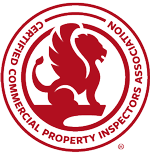Who Can Perform a Commercial Property Inspection?
This video discusses how all commercial property inspections are unique and covers three basic approaches that the commercial property inspector can take based on:
- the single inspector;
- the team inspector; and
- experts or specialty consultants.
Although it is important to understand the three basic approaches to an inspection, it is of greatest relevance to accept that the lead inspector is basically the inspection project manager, and managing and organizing people to carry out assigned tasks are that person’s fundamental responsibilities.
There are various individuals that a lead inspector must manage and coordinate with during any given project, including:
- the client;
- the client’s agent or counsel;
- the building’s occupants;
- the inspection team members; and
- other specialty consultants and subcontractors.
In general, fulfilling a project management role requires specific personality traits, skills, and training, which often do not come instinctively. It is something that takes effort and practice.
Career Pathway
Some people consider reaching a management role to be the pinnacle of a career because, generally, the career path started with performing and mastering a skill set, and then it advances to managing and leading a team of people who are performing jobs in the same field or general industry.
Particularly for commercial property inspectors, the pathway may look something like the following scenarios:
- A home inspector builds upon his/her existing inspection skills and knowledge of residential building systems and components.
- A skilled industrial or construction tradesman builds upon his/her existing inspection skills and knowledge of a specific property element.
- A property manager builds upon his/her existing managerial skills and general knowledge of commercial properties.
- A code compliance inspector builds upon his/her existing inspection skills and general knowledge of building systems and components.
Each pathway requires that the individual possess a set of specific personality traits and skills. It is up to the individual to determine their strengths and weaknesses. After that, look for team members, employees, and specialty consultants to fill in the gaps. Additionally, take the initiative to acquire training in your own areas of weakness.
Another thing to consider is that each pathway provides the individual with unique connections that are useful in getting started in the inspection industry’s commercial sector and executing projects. For instance, you may find that your current real estate agent connections will help you build a client base, while your relationships with specialized tradesmen and inspectors will help you build your team of inspectors and specialty consultants.
These connections can be a catalyst for landing your first jobs and bringing on your first team members, whether they’re other inspectors or specialty consultants. Plus, if you have strong relationships with specialized tradesmen and inspectors, they may cut you a reasonable contract rate, which will help you make a profit.
Note that many career pathways may lead you to a career in commercial property inspections. A background in inspection, property management, or building systems is not required.
Critical Thinking Exercise
Based on your career pathway, consider your personality traits, skills, and training to answer the following questions:
- What are your strengths and weaknesses?
- Based on your strengths and weaknesses, are there certain people you should regularly have on your team?
- Based on your current connections, are there specific individuals who you should reach out to to help build your client base?
- Based on your existing relationships, are there specific individuals who you should reach out to in order to fulfill a position on your team of inspectors or specialty consultants?
Essential Traits
A management role can be an exciting and rewarding experience, but it requires essential traits for success. Consider the following characteristics when weighing whether heading a commercial property inspection team is right for you. Note that having all of these characteristics or missing some does not necessarily dictate success or mean you won’t rise to meet them when the time comes.
The essential traits include:
- Initiative. Being a commercial property inspector requires strong ambition to acquire clients effectively, bring on team members, and execute jobs. It means that you have the ability to assess and initiate tasks independently. It also means that you’re always alert to the status of your projects and ready to act and take charge.
- Reliability. It means that you’re trustworthy and you consistently do good work. Being reliable builds credibility and is vital to maintaining relationships that you depend on for success. The bottom line is to keep your commitments. Failure to pay a contracted electrician on time can leave a lasting impression, and failure to complete a job on time can damage the good reputation that took you years to build.
- Attention to detail. Your attention to detail is apparent in the proposals and reports you send out as part of your commercial property inspection business. Part of this equation is your knack for hiring solid team members, and paying close attention to their quality of work, including their individual reports. It also includes portions of the inspection that you perform yourself.
- Thirst for knowledge. Understanding the basics of building systems and inspection procedures is only a part of what you need to know. Commercial properties are diverse, and building construction is ever-evolving. It’s in your best interests to find ways to stay up-to-date on building trends (or have people on your team who do), and to expand your knowledge of different types of buildings, industries, and features in your service area for the sake of being able to take on a variety of projects, and being a knowledgeable point of contact (POC) for your client.
- Ability to get along with others. The ability to successfully deal with a variety of people may be the most important trait of them all, especially when managing a team. For instance, according to Dale Carnegie, author of the famous “How to Win Friends and Influence People,” financial success is 15% due to professional knowledge and 85% due to be able to express ideas, be a leader, and to arouse enthusiasm in other people.
All these essential traits are relevant for anyone performing commercial property inspections, including whether you’re starting your business, leading a commercial division, or heading up a specific team within an existing company. These traits are also necessary to graduate from a team member role to a management role.
The Entrepreneurial Mindset
Consider whether you have the characteristics and skills commonly associated with owning and operating a successful business. You can start by viewing yourself as an entrepreneur, which is defined as a person who organizes and manages a business, usually with considerable initiative and risk, and employs productive labor.
CEO and Owner
You are ultimately responsible for the success or failure of your business. You are the CEO and owner. You’re the one who goes without a paycheck for everyone else to get paid. You’re the one who will work the longest and the hardest. You’ll do everything you can to take care of your clients. You’re the one who can’t sleep at night as the day’s business operations and tomorrow’s schedule run through your head. You’re here for the long run. It’s all on your shoulders.
As the owner, you’ve got many responsibilities. But on top of all of that, you have to take some time to step back and work on your business. Working on your business means that you’re not just doing inspections. But you are using your mind to think and plan where your business is going. Where’s it heading? Working on your business means spending time to work on new ideas, such as marketing strategies, hiring inspectors, revenue projections, and so on. It’s not just about getting today’s inspections completed.
Running a successful commercial property inspection business requires finding time to think, read, learn, talk to other inspectors, and figure out how others have built and are operating successful companies.
But don’t get too frustrated. Stay focused. Work every day to make progress. That’s what running a business is all about. The essential traits associated with a management role also apply to an entrepreneurial mindset, in addition to:
- Stress tolerance. Business owners face many different stressors daily, including dealing with employees and specialty consultants, angry customers, and enduring times when business is slow. You cannot let your emotions and stress interfere with your job performance or dim your overall attitude.
- Risk tolerance. Being your own boss means you’re the one making the tough decisions, and that requires mental toughness. Entrepreneurship also involves uncertainty, considering that you’ll have your livelihood and finances on the line.
- Independence. Entrepreneurs have to make a lot of decisions on their own, independent of everyone else. If you feel that you can trust your instincts — and you’re not afraid of rejection every now and then — you could be on your way to success.
- Creativity. Do you consider yourself a creative thinker? Can you see a situation from different angles? Have you ever come up with new ways to solve old or persistent problems? Entrepreneurs must be able to think creatively. If you’re anxious to take advantage of new opportunities, entrepreneurship may be a good fit. You’ll probably work hard on your business. But you want to think smart and creatively about how you approach your business. That’s what it means to think outside the box. You’ll need to work hard but think harder.
- Passion. Nothing difficult is ever accomplished without passion, and there will be many challenges you’ll face as an entrepreneur, especially in the early days of starting your business. But your passion will fuel your daily grind and get you through difficult decisions and periods.
Conclusion
Commercial property inspectors often take on the role of being the inspection project manager because a large part of the job is coordinating with different people and projects. Generally, fulfilling such a management role requires effort and practice of the traits and skills needed. Additionally, those who choose to be the CEO and owner of an inspection operation also must adapt to the entrepreneurial mindset.
Additional Commercial Property Inspector Resources:


